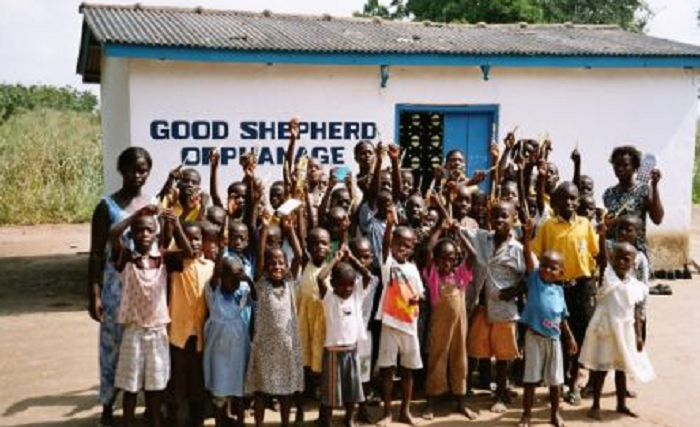
Support families, not orphanages!
Assuming you suddenly found yourself in an unfortunate situation and couldn’t take care of your child, would you prefer to place her in an orphanage or at home among people she knows and loves. Supposing tomorrow you become poor, would you prefer to place your child in an orphanage or rather benefit from family and child support services and keep your child at home?
Advertisement
Poverty should never be the only justification for removing a child from parental care, nor a consideration for receiving a child into residential care, or preventing her reintegration to her family, but should be seen as a signal for the need to provide appropriate targeted support to the family. Removal of a child from the care of the family should always be seen as a measure of last resort.
In Ghana, thousands of children have entered Residential Homes for Children – or ‘orphanages’, as they are often called – due to poverty, but rarely because they are orphans. In fact, most children who end up in institutions have at least one living parent and a sizeable number of children who entered institutional care in Ghana were placed there by their biological parents because of poverty.
Such unnecessary institutionalisation of children, especially damaging at an early age, can be prevented if the right support services are in place in their communities. Tackling child poverty goes hand in hand with ending institutional care for children.
We can applaud the national efforts to develop quality family-based alternatives instead of institutional care but the fact that out of the 115 Residential Homes currently in Ghana, only three are run by the government and the rest by private local and international NGOs reflects a long history of under-investment in social welfare that goes to promote child and family welfare.
Many people hold the perception that residential homes are safe places for children in need of care and protection, but this is often not the case. Eighty years of research has shown on the contrary the negative impact of institutionalisation on children’s health, development and life chances. These include physical stunting; poor social and psychological development; lower IQs and levels of brain activity; and poor self-confidence, lack of empathy, aggression, tendency to self-harm and delayed language development.
Because they have very few contact with the community, children living in institutional care often do not develop social networks or skills that are essential in adulthood. It is harder for them to find employment and they are more likely to have behavioural, physical and mental health problems, including high-risk behaviours, sexually transmitted infections, alcohol or drug misuse and violence. The risk of abuse and neglect in poorly resourced and monitored residential care is also well documented in the 2006 UN Study on Violence against Children.
Moreover, many studies have shown that institutional care of children is not only expensive and ineffective, but it contributes to holding back investments in the development of services to support and strengthen vulnerable families and prevention of family breakdown.
The detrimental effects of residential care are increased when children are placed at an early age and/or for long periods of time, especially in institutions with large numbers of children and few caregivers.
In Ghana, the majority of Residential Homes are not licensed (only 29 out of 115), not regulated and do not comply with the Country’s minimum standards for residential homes for children.
The UN Guidelines for the Alternative Care of Children recognise the need for residential care as a temporary alternative care solution for some children in emergency situations and with no other means of support but only as a last resort if no immediate placement in the community is found. A small group home may also be most appropriate for older children with extreme behavioural concerns, or children with complex disabilities.
The transition from institutional to family- and community-based care (also known as deinstitutionalisation) should be an urgent priority for the country. Managing the complexity of the deinstitutionalisation process means adequately resourcing the Department of Social Welfare (DSW) to prevent unnecessary separation by identifying and providing the needed support services to vulnerable families. It will also help the DSW scale up alternative family-based care options, develop a rigorous national monitor and inspection system for all residential homes and support the reintegration of children with their family.
Institutionalisation is not only a human rights issue, it is also a question of the focus and priorities of the country’s economic and social policies. In Ghana, NGOs are generally




